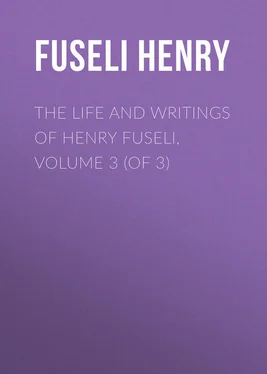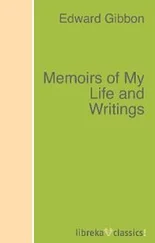Henry Fuseli - The Life and Writings of Henry Fuseli, Volume 3 (of 3)
Здесь есть возможность читать онлайн «Henry Fuseli - The Life and Writings of Henry Fuseli, Volume 3 (of 3)» — ознакомительный отрывок электронной книги совершенно бесплатно, а после прочтения отрывка купить полную версию. В некоторых случаях можно слушать аудио, скачать через торрент в формате fb2 и присутствует краткое содержание. Жанр: visual_arts, foreign_antique, foreign_prose, на английском языке. Описание произведения, (предисловие) а так же отзывы посетителей доступны на портале библиотеки ЛибКат.
- Название:The Life and Writings of Henry Fuseli, Volume 3 (of 3)
- Автор:
- Жанр:
- Год:неизвестен
- ISBN:нет данных
- Рейтинг книги:5 / 5. Голосов: 1
-
Избранное:Добавить в избранное
- Отзывы:
-
Ваша оценка:
- 100
- 1
- 2
- 3
- 4
- 5
The Life and Writings of Henry Fuseli, Volume 3 (of 3): краткое содержание, описание и аннотация
Предлагаем к чтению аннотацию, описание, краткое содержание или предисловие (зависит от того, что написал сам автор книги «The Life and Writings of Henry Fuseli, Volume 3 (of 3)»). Если вы не нашли необходимую информацию о книге — напишите в комментариях, мы постараемся отыскать её.
The Life and Writings of Henry Fuseli, Volume 3 (of 3) — читать онлайн ознакомительный отрывок
Ниже представлен текст книги, разбитый по страницам. Система сохранения места последней прочитанной страницы, позволяет с удобством читать онлайн бесплатно книгу «The Life and Writings of Henry Fuseli, Volume 3 (of 3)», без необходимости каждый раз заново искать на чём Вы остановились. Поставьте закладку, и сможете в любой момент перейти на страницу, на которой закончили чтение.
Интервал:
Закладка:
83. He fails with greater dignity, who expresses the principal feature of his subject and misses or neglects all the secondary, than he who consumes his powers on what is subordinate and comes exhausted to the chief.
Coroll. – Those who have asserted that Lionardo, in finishing the Last Supper, was so exhausted by his exertions to trace the characters and emotions of the disciples, that, unable to fix the physiognomy of Christ, he found himself reduced to the necessity of leaving that head unfinished, – either never saw it, or if they did, were too low to reach the height, and too shallow to fathom the depth of the conception.
84. The coward, driven to despair, leaps back into the face of danger; and the tame, stimulated to exertions and aiming at expression, puffs spirit into flutter; or tears the garb of passion and flourishes the rags.
85. Affectation cannot excite sympathy. How can you feel for him who cannot feel for himself? How can he feel for himself, who exhibits the artificial graces of studied attitude?
86. The loathsome is abominable, and no engine of expression.
Coroll. When Spenser dragged into light the entrails of the serpent, slain by the Red-cross Knight, he dreamt a butcher's dream and not a poet's: and Fletcher, 10 10 Sea Voyage, Act 3rd. sc. 1st.
or his partner, when rummaging the surgeon's box of cataplasms and trusses to assuage hunger, solicited the grunt of an applauding sty.
87. Sympathy and disgust are the lines that separate terror from horror: though we shudder at, we scarcely pity what we abominate.
Coroll. – Rowe, when he congratulates the ghost on bidding Hamlet spare his mother, accuses her of a crime with which the poet never charged her: that Shakspeare might be hurried on to horror let the "vile jelly" witness, which Cornwall treads from Gloster's bleeding sockets.
88. Expression animates, convulses, or absorbs form. The Apollo is animated; the warrior of Agasias is agitated; the Laocoon is convulsed; the Niobe is absorbed.
89. The being seized by an enormous passion, be it joy or grief, hope or despair, loses the character of its own individual expression, and is absorbed by the power of the feature that attracts it: Niobe and her family are assimilated by extreme anguish; Ugolino is petrified by the fate that sweeps his sons; and every metamorphosis from that of Clytie to the transfusion of Gianni Fucci 11 11 Dante Inferno, Cant. xxiv.
tells a new allegory of sympathetic power.
90. Reject with indignant incredulity all self-congratulations of conscious villainy, though they be uttered by Richard or by Iago.
91. The axe, the wheel, saw-dust, and the blood-stained sheet are not legitimate substitutes of terror.
92. All division diminishes, all mixtures impair the simplicity and clearness of expression.
93. The epoch which discovered expression, or what the Greeks called "manners," 12 12 ΗΘΗ. Mores. Plin. l. xxxv.
is marked by Pliny as that which gave importance and effect to art.
Coroll. – Homer invested his heroes with ideal powers, but copied nature in delineating their moral character. Achilles, the irresistible in arms, clad in celestial armour, is a splendid being, created by himself; Achilles the fool of passions, is the real man delivered to him by tradition.
That the plastic artist should have had an aim beyond the poet is improbable, because the poet, in general, furnished him with materials; he composed his man of beauty and ideal limbs, not to obscure, but to invigorate his character and our attention.
The limbs, the form of Ajax hurling defiance from the sea-swept rock unto the murky sky, were, no doubt, exquisite; but if the artist mitigated his expression, the indignation due to blasphemy from the spectator gave way to sterner indignation at the injustice of his gods.
The expression of the ancients, from the heights and depths of the sublime, descended and emerged to search every nook of the human breast; from the ambrosial locks of Zeus, and the maternal phantom fluttering round Ulysses, 13 13 The Necromantia of Nicias – the sacking of a town, by Aristides. Plin. l. xxxv.
to the half-slain mother, shuddering lest the infant should suck the blood from her palsied nipple, and the fond attention of Penelope dwelling on the relation of her returned son. 14 14 A group of Stephanus in the Villa Ludovisi, known by the name of Papyrius and his mother, called a Phædra and Hippolytus, or an Electra with Orestes, by J. Winkelmann, bears more resemblance to an Æthra with Theseus, or a Penelope with Telemachus.
The expression of the ancients explored nature even in the mute recesses, in the sullen organs of the brute; from the Argus of Ulysses, to the lamb, the symbol of expiatory resignation, on an altar, and to the untameable feature of the toad.
The expression of the ancients roamed all the fields of licit and illicit pleasure; from the petulance with which Ctesilochus exhibited the pangs of a Jupiter delivered by celestial midwives, to the libidinous sports of Parrhasius, and from these to the indecent caricature 15 15 Gallum inficetissime linguam exserentem. – Plin. l. xxxv.
which furnished Crassus with a repartee.
The ancients extended expression even to the colour of their materials in sculpture: to express the remorse of Athamas, Aristonidas the Theban mixed metals; and Alcon formed a Hercules of iron, to express the perseverance of the God. 16 16 Plin. l. xxx. W. c. xiv.
94. Invention, before it attends to composition, group, or contrast, classes its subject and ascertains what kind of impression it is to make on the whole.
95. Invention never suffers the action to expire, nor the spectator's fancy to consume itself in preparation, or stagnate into repose: it neither begins from the egg, nor coldly gathers the remains; for action and interest terminate together.
96. The middle moment, the moment of suspense, the crisis, is the moment of importance, big with the past and pregnant with the future: we rush from the flames with the Warrior of Agasias, and look forward to his enemy; or we hang in suspense over the wound of the Expiring Soldier, 17 17 Commonly named the Dying Gladiator; by J. Winkelmann called a Herald; with more probability the "Vulneratus deficiens, in quo possit intelligi quantum restet animæ." A work of Ctesilas in bronze, was probably the model of this. Plin. l. xxxiv.
and poise with every drop which yet remains of life.
97. Distinguish between the hero and the actor; between exertions of study and effects of impulse.
98. Know that expression has its classes. The frown of the Hercynian phantom may repress the ardour, but cannot subdue the dignity of Drusus; 18 18 Sueton. l. vi.
the terror of the Centurion at the Resurrection 19 19 In one of the cartoons of Raffaello, now lost, but still in some degree existing in tapestry and in print.
is not the panic of his soldiers; the palpitation of Hamlet cannot degenerate into vulgar fright.
Coroll. – Of all the eclectics, Domenichino alone composed for expression; but his expression compared with Raffaello's is the expression of Theocritus compared with that of Homer. A detail of pretty images is rather calculated to diminish than to enforce energy with the whole: a lovely child taking refuge in the bosom of a lovely mother is an idea of nature, and pleasing in a lowly or domestic subject; but amidst the terrors of martyrdom, it is a shred tacked to a purple robe. In touching the circle that surrounds the Ananias of Raffaelle, you touch the electric chain; an irresistible spark darts from the last as from the first, and penetrates and subdues. At the Martyrdom of St. Agnes, 20 20 Engraved by G. Audran.
you saunter amidst the mob of a lane, where the silly chat of neighbouring gossips announces a topic as silly, till you find, with indignation, that instead of a broken pot, or a petty theft, you are to witness a scene for which Heaven opens, the angels descend, and Jesus rises from his throne.
Интервал:
Закладка:
Похожие книги на «The Life and Writings of Henry Fuseli, Volume 3 (of 3)»
Представляем Вашему вниманию похожие книги на «The Life and Writings of Henry Fuseli, Volume 3 (of 3)» списком для выбора. Мы отобрали схожую по названию и смыслу литературу в надежде предоставить читателям больше вариантов отыскать новые, интересные, ещё непрочитанные произведения.
Обсуждение, отзывы о книге «The Life and Writings of Henry Fuseli, Volume 3 (of 3)» и просто собственные мнения читателей. Оставьте ваши комментарии, напишите, что Вы думаете о произведении, его смысле или главных героях. Укажите что конкретно понравилось, а что нет, и почему Вы так считаете.












